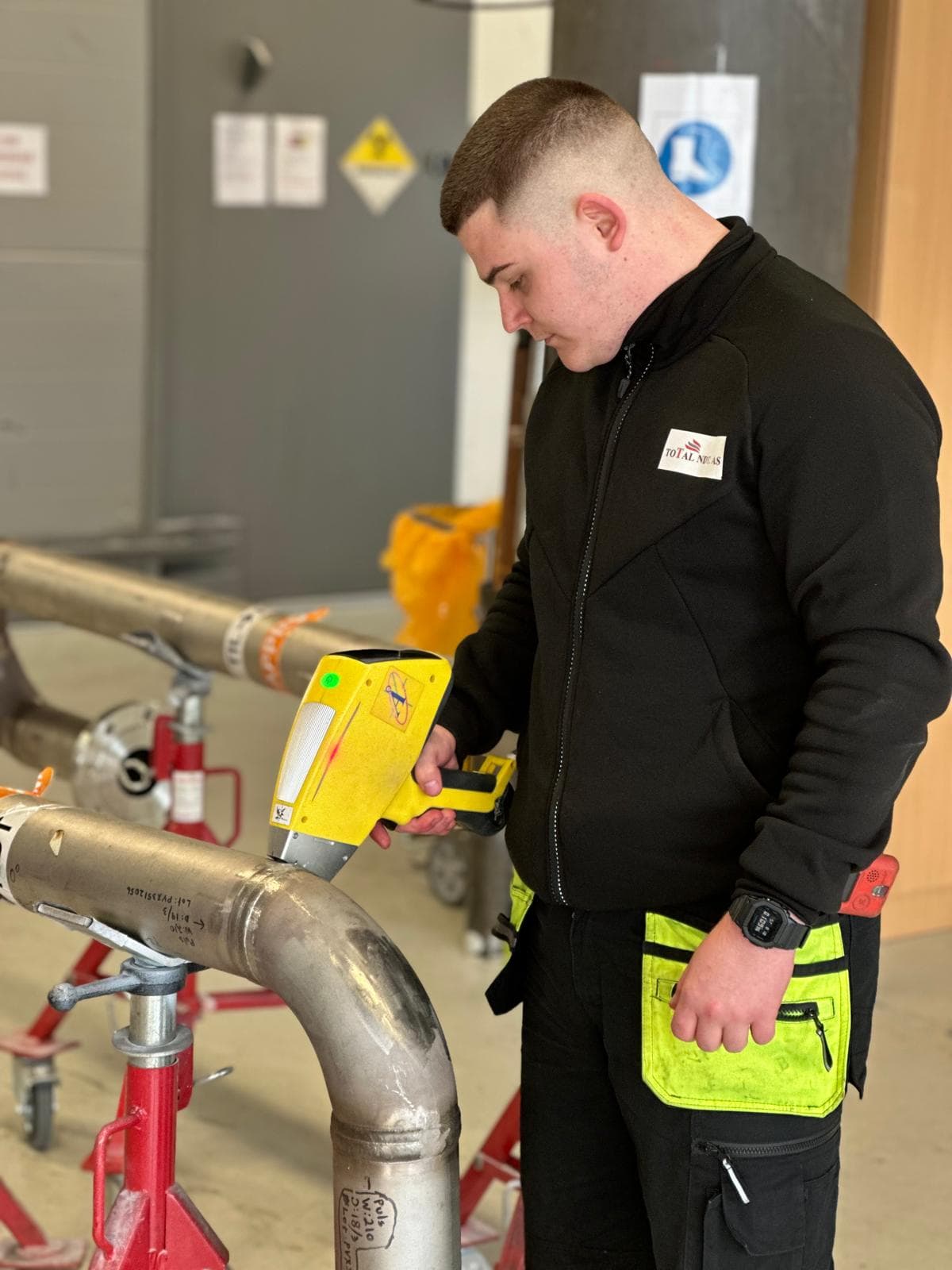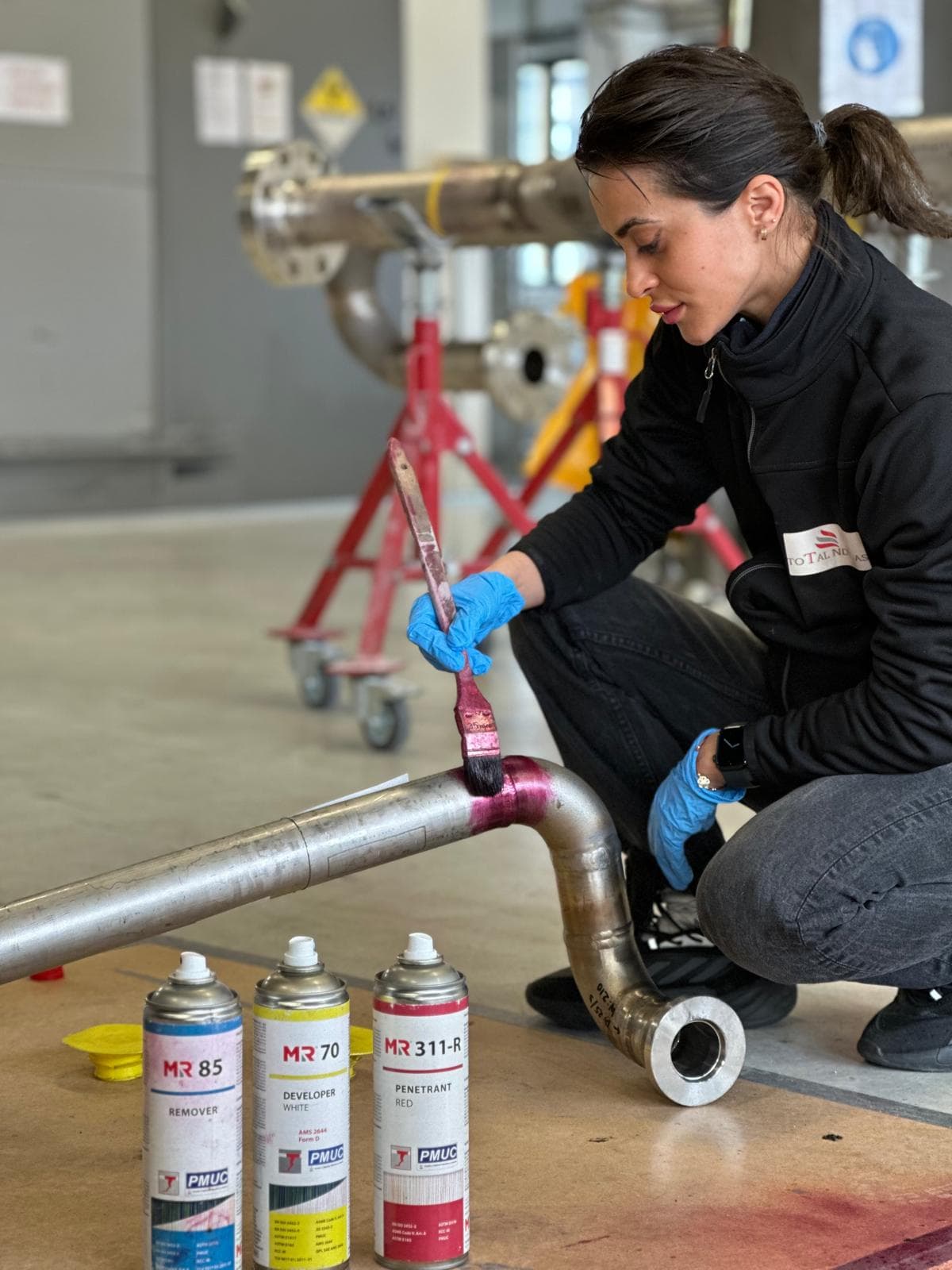
Positive Material Identification
Positive Material Identification (PMI) is a non-destructive testing (NDT) technique used to verify the chemical composition of materials, particularly metals and alloys. This method ensures that materials meet specified chemical composition requirements and helps prevent material mix-ups, errors, and potential failures in industrial applications.
How it works:
1. Selection of Analytical Technique: PMI can be performed using various analytical techniques, including X-ray fluorescence (XRF), optical emission spectrometry (OES), and laser-induced breakdown spectroscopy (LIBS). The appropriate technique is selected based on factors such as material type, surface condition, and required accuracy.
2. Sample Preparation: A small portion of the material is typically sampled for analysis. For bulk materials, portable handheld devices can be used directly on the surface, while for smaller components, samples may be extracted and prepared for analysis.
3. Analysis: The selected analytical technique is used to analyze the composition of the material sample. This may involve exposing the sample to X-rays, a laser, or an electrical discharge to excite the atoms in the material and produce characteristic emissions that are indicative of its elemental composition.
4. Comparison with Specifications: The results of the analysis are compared with known reference standards or specifications to verify compliance with the required chemical composition. Any deviations or discrepancies are investigated further to ensure the integrity and quality of the material.
Applications:
Positive Material Identification is widely used in industries such as aerospace, automotive, petrochemical, power generation, and manufacturing for various applications, including:
1. Material Verification: PMI ensures that materials used in construction, fabrication, and assembly processes meet specified composition requirements and regulatory standards.
2. Quality Assurance: By verifying the chemical composition of materials, PMI helps maintain quality control and ensures the performance, reliability, and safety of finished products.
3. Preventing Contamination: PMI helps prevent contamination and cross-contamination by identifying and segregating materials with incompatible compositions, reducing the risk of corrosion, degradation, or failure.

Verify correct alloy usage in manufacturing for product integrity.
Detect mixed-up alloys without disrupting production flow.
Continuous production: Alloy verification without stopping the line.
Identify incorrect material usage promptly for quality assurance.
Ensure compliance with both customer and industry standards and specifications.
Confirm correct filler material in welded components for structural reliability.
Other Services
Check out our other services
Radiography
Our radiography services are designed to provide you with the insights needed to make informed decisions.
Ultrasonic Inspection
Our ultrasonic inspection services are designed to ensure the safety and reliability of your assets.
Visual Inspection
Our visual inspection services are designed to provide you with the insights needed to make informed decisions.
Magnetic Particle Inspection
Our magnetic particle inspection services are designed to ensure the safety and reliability of your assets.
Liquid Penetrant Inspection
Our liquid penetrant inspection services are designed to provide you with the insights needed to make informed decisions.
Hardness Testing
Our hardness testing services are designed to ensure the safety and reliability of your assets.





